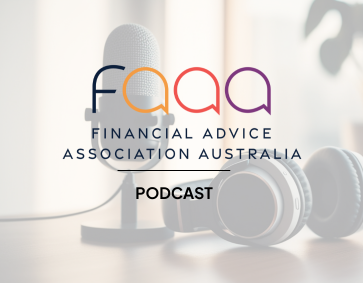Nearly three-quarters (71 per cent) of Australian investors are willing to sacrifice between 1-10 per cent in returns in order to create a positive impact, according to the seventh global impact investing survey by American Century Investments, a US$240 billion* global asset manager.
The survey, undertaken in December 2023, measured how attitudes to impact investing have changed over time. Survey results go back to 2016 in the US, 2019 in the UK, 2020 in Germany, 2021 in Australia and 2022 in Singapore.
The latest survey found almost one-third of Australians (30 per cent) were willing to give up between 6 to 10 per cent of returns in order to create a positive impact, and a further 42 per cent said they would give up between 1 and 5 per cent.
However, the appeal of impact investing overall has declined after several years of steady growth, with Australia showing the biggest decline compared to the other countries surveyed.
While over half of Australians surveyed agreed that impact investing appealed to them (57 per cent), this is a fall from last year’s survey (63 per cent).
Across the board, there was a drop in interest in impact investing in all countries surveyed. In Australia interest was down 6 per cent, while in Singapore and the UK it fell 5 per cent. In Germany it was down 4 per cent. The US experienced the smallest decline of just 1 per cent between 2022 and 2023.
This decline is also seen across generations. In Australia, appeal has fallen by 8 per cent between 2022 and 2023 for Gen Z, 11 per cent for Millennials and 9 per cent for Gen X. Perhaps surprisingly, for Baby Boomers it has stayed the same.
Health care was the top impact concern for Australian investors in 2023 at 33 per cent, followed by the environment at 26 per cent and education at 12 per cent.
Australian investors are feeling the impact of the current market environment
More than one-third of Australians surveyed (35 per cent) cited recent economic conditions, including rising inflation and geopolitical tensions, as negatively affecting their willingness to allocate to impact investing.
Greenwashing did not influence most investors: fewer than one-third of respondents in the UK, Germany and Australia said greenwashing had affected their interest in impact investing, a smaller share of respondents than in last year’s survey. Only the US has seen an increase in the influence of greenwashing and a sustainability backlash.
“It seems that ongoing market volatility, and persistent inflation, has investors’ minds focused on returns rather than on the impact of their investment,” says senior vice president and head of sustainable investing for American Century Investments, Sarah Bratton Hughes.
“Nonetheless, there is still a strong willingness to sacrifice some returns for the benefits of investing in impact funds.
“A willingness to give up a proportion of expected returns shows that impact investors still expect to earn competitive returns and are making rational choices to realise an impact emphasis in addition to a financial return.
“While it is positive that investors are willing to sacrifice returns in order to realise the benefits of investing in impact funds, often this is not necessary, as impact funds historically show returns in line with their non-impact counterparts.
“Identifying impact-related factors that could affect a company’s ability to stay competitive over the long term has the potential to add to returns,” Bratton Hughes added.
More than 40 per cent of American Century dividends go to the Stowers Institute for Medical Research, a world-class biomedical research organization with an equity stake in American Century. American Century Investments has generated more than $2 billion in dividends for the Stowers Institute since 2000.
Survey methodology
The 2023 survey was conducted with representative samples of adults 18 years of age and older. There were 1,007 participants in the U.S. survey, 1,004 in the U.K. survey, 1,003 in Germany, 1,005 in Australia and 1,002 in Singapore. The study was fielded using Big Village’s Online CARAVAN Omnibus Survey, with the results weighted by age, sex, geographic region, race and education to ensure reliable and accurate representations of the adult populations in each country. For the purposes of this survey, millennials were defined as those aged 25 to 40, Gen Xers were defined as those aged 41 to 56, and baby boomers were defined as those aged 57 to 75.
About American Century Investments
American Century Investments is a leading global asset manager focused on delivering investment results and building long-term client relationships while supporting breakthrough medical research. Founded in 1958, American Century Investments’ 1,400 employees serve financial professionals, institutions, corporations and individual investors from offices in Kansas City, Missouri; New York; Los Angeles; Santa Clara, California; Portland, Oregon; London; Frankfurt, Germany; Hong Kong; and Sydney.
Jonathan S. Thomas is president and chief executive officer, and Victor Zhang serves as chief investment officer. Delivering investment results to clients enables American Century Investments to distribute over 40% of its dividends to the Stowers Institute for Medical Research, a 500-person, nonprofit basic biomedical research organization. The Institute owns more than 40% of American Century Investments and has received dividend payments of more than $2 billion since 2000. For more information about American Century Investments, visit www.americancentury.com.












